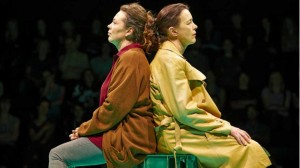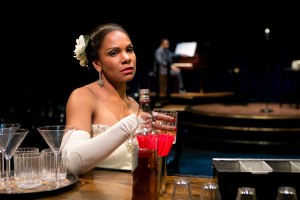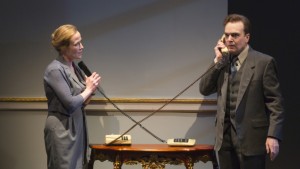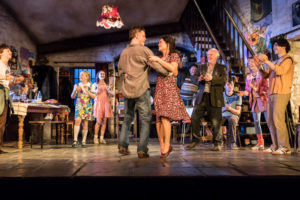 The Ferryman by Jez Butterworth
The Ferryman by Jez Butterworth
at The Gielguld Theatre
November 24th, 2017
“This isn’t history. This is now.’ Everyone living in Northern Ireland will become part of this story; this history, whether they want to or not.”
Uncle Pat: “Let’s not be teaching the wean that being English makes you wicked.”
Aunt Pat: “As a rule of thumb, it’s proved uncannily accurate.”
It’s five years since I saw Jez Butterworth’s powerful Jerusalem. Similarly, The Ferryman is a layered and edgy production.
Nothing as it seems. Quinn,( William Houston) who we meet at home in one of the opening scenes, dancing wildly in the wee hours to the Rolling Stones with a woman we assume, is his wife or a lover. She’s not. Caitlin Carney (Catherine McCormack) is Quinn’s sister-in-law and the wife of the dead man. Laura Donnelly, the original Caitlin, was just a child when her uncle was taken away by the IRA, shot dead, and his body dumped in a bog: the core that Butterworth retells here. There’s a clue in the title, as in mythology Charon ferries souls from this world to the next. McCormack plays a woman whose husband’s body is accidentally uncovered a decade after he was secretly buried, sparking a wave of violence and stirring up almost forgotten memories. When I saw the play the role was played by Catherine McCormack. The play is set in the same year in rural Northern Ireland in 1981. A lot of old history resurfaces with him and so the family is entangled in Ireland’s bloodstained legacy of violence. Continue reading The Ferryman

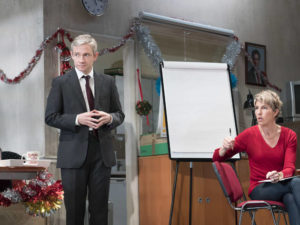 “Labour of Love” by James Graham
“Labour of Love” by James Graham  The Young Marx by Richard Bean and Clive Coleman
The Young Marx by Richard Bean and Clive Coleman Girl from the North Country by Conor Mcpherson
Girl from the North Country by Conor Mcpherson 